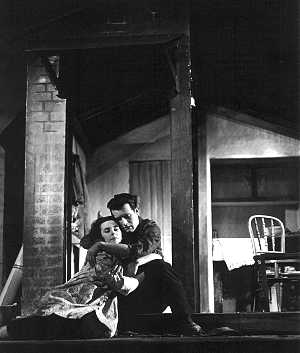Elaborately laid literary schemes are notorious for their habit of losing impetus as the work gets under way. And although it is possible that when Mr. Arnold Wesker first conceived the idea for his trilogy of plays he intended the essential statement to be made at the end, the fact remains that I'm Talking About Jerusalem, which opened last night at the Belgrade Theatre, Coventry, is a work of far less clarity and dramatic energy than its two predecessors, Chicken Soup with Barley and Roots.
Those two plays had the additional theatrical advantage of being self-contained. In the new play there is such an abundance of cross-references to the others that unless one knows about Harry Kahn and Beattie Bryant to begin with, a great deal will remain obscure.

